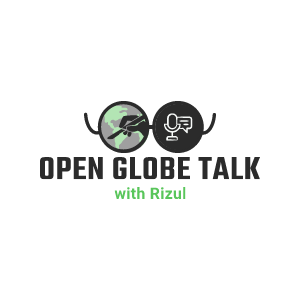January 30, 2023
Episode 33: Dr. Craig Chaya, MD
A discussion on
“Glaucoma Awareness Month: Global Ophthalmology Training in Glaucoma”
The importance of persistence and the willingness to jump feet first at opportunities!
Video
Audio
Dr. Craig Chaya, MD
We are excited to have Dr. Craig Chaya, MD join us today as he shares his remarkable journey of persistence and dedication to global health.
Dr. Chaya is an assistant clinical professor at University of Utah and the Division Chief of its Global Ophthalmology Department. He completed medical school at Loma Linda University School of Medicine and an Ophthalmology residency at Texas Tech University. He completed two ophthalmology fellowships. An International ophthalmology fellowship as a Freedom Foundation Fellow through the Himalayan Cataract Project in Nepal. Another in Glaucoma at the University of Utah. Dr. Chaya’s global work has encompassed work in Nepal, Thailand, Haiti, Ghana, Guam, and Micronesia.
His research interests are in preventing global blindness and developing novel glaucoma surgery devices with specific attention to customized and holistic care. As one of the prominent leaders in global ophthalmology, we are very glad to have him here with us today and learn about the sustainable approaches to how we can better our healthcare delivery systems.
Key discussion points:
Journey to becoming an ophthalmologist.
Having a later exposure to ophthalmology and being inspired by the ‘restoration of vision’.
Internal medicine and its influence on subspecialty selection (glaucoma)
Certainly, the patients: longitudinal follow-up and chronic disease aspect of glaucoma
Great innovations in the field of glaucoma
Glaucoma surgery innovations have been one of the fastest in the recent decade.
Major causes of irreversible blindness: cataract and glaucoma
How did you choose to pursue a global ophthalmology fellowship even when this was a new concept?
Being at the right place at the right time
Dr. Geoff Tabin and Dr. Alan Crandall
Dr. Michael Feilmeier was one of the first global ophthalmology fellows at Moran.
Went to Nepal for 6-7 weeks where he met Dr. Sanduk Ruit, Dr. Suman Thapa (glaucoma specialist), and Dr. Ben Limbu
Seeing how systems worked was very formative.
Would spending more time abroad have helped?
Right after fellowship is perfect time.
Experiencing global ophthalmology with family in Nepal
Would have helped to understand the scope of the global burden of blindness better.
Impressed by system of education and polite obligation in Nepal - trainees feel indebted to give back to the Tilganga institution.
The choice of country to focus on for global work.
You have to be mindful of country requirements. Some countries require foreign ophthalmologists to sit for boards all over again.
It is important to understand that things don’t always happen in the way you plan them.
Spent some time in Guam and planned to settle in New Zealand. That was when a chance meeting with Dr. Randall J Olson, MD provided an opportunity to be at Utah to help train and teach global ophthalmology.
Glaucoma
Even the best surgeries eventually end up failing over time.
This is what drives innovation: to make diagnosis and management of glaucoma better!
Treatment works best in the setting of early glaucoma. Early diagnosis is key!
It’s amazing how much innovation has occurred in the past 5 years.
Importance to focus on cost-effectiveness!
Challenges in low-resource settings: reproducibility, if it involves a device then you have to figure out manufacturing, resources for research, education of patients with proper informed consent, and having on-the-ground partners that can carry ethical practices!
Think about countries where there is no equivalent to FDA or IRB: need to continue with ethical practices as one would want for their own family member.
Need to think about the repercussions of delayed care. This is why country partners are so important.
Need for utilizing resources properly and think about incorporating office-based surgery (has excellent safety data and cost-effectiveness). We have so much to learn from low-resource settings to create meaningful impact. We have to change our mindset to help low-resourced patients here in the US.
Dr. Michael Yeh recognized the significant need of the Navajo nation population.
Importance of relationship building and developing trust with providers
Understanding culture and context of how preventable blindness affected quality-of-life
Number one issue for seeking medical care was access of subspecialists despite having good primary care
Creative ways in maintaining contact during covid to prevent complete halt of subspecialty care
Online spreadsheet that was updated weekly as a remote triage to help provide care to patients who needed urgent care
Many great specialists working on teleophthalmology.
Importance of advocacy: an important core competency for fellows to work on!
Episode-based Resources:


